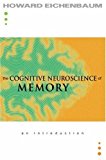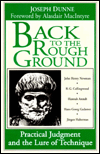The Cognitive Neuroscience of Memory: An Introduction
Eichenbaum, Howard
This Clear And Accessible Textbook Introduces Students To The Brain's Remarkable Capacity For Memory. The Book Is Organized Into Sections Corresponding To Its Four Major Themes: Connection Considers How Memory Is Based On Alterations Tp The Communication Between Nerve Cells. Cognition Discusses The Fundamental Psychological Structure Of Memory. Compartmentalization Involved The Notion That The Different Forms Of Memory Are Accomplished By Distinct Brain Systems. Consolidation Refers To Processes By Which Memories Are Transformed From A Labile Trace Into A Permanent Store. It Provides New Insights Into How Memory Works And How It Is Fundamental To All Aspects Of Cognition, Behavior, And Emotion. The Book Assumes Little Background Knowledge From Biology Or Psychology, And Is Intended For Use In Undergraduate Courses In Memory And Cognitive Science, And Early Graduate Courses In Neuroscience, Cognitive Science, Or Biology. Introduction : Four Themes In Research On The Neurobiology Of Memory -- Neurons And Simple Memory Circuits -- Cellular Mechanisms Of Memory : Complex Circuits -- Amnesia, Learning About Memory And Memory Loss -- Exploring Declarative Memory Using Animal Models -- Windows Into The Workings Of Memory -- The Cerebral Cortex And Memory -- Multiple Memory Systems In The Brain -- A Brain System For Declarative Meory -- A Brain System For Procedural Memory -- A Brain System For Emotional Memory -- Two Distinct Stages Of Memory Consolidation -- Working With Memory. Howard Eichenbaum. Includes Bibliographical References And Index.
Memory, Memory--physiology, Brain--physiology, Cognition--physiology, QP406 .E334 2002, WL 102 E338c 2002, 612.82
| Name in long format: | The Cognitive Neuroscience of Memory: An Introduction |
|---|---|
| ISBN-10: | 0195141741 |
| ISBN-13: | 9780195141740 |
| Book pages: | 384 |
| Book language: | en |
| Edition: | 1 |
| Binding: | Hardcover |
| Publisher: | Oxford University Press |
| Dimensions: | Height: 9.2 Inches, Length: 6.3 Inches, Weight: 1.3999353637 Pounds, Width: 1.1 Inches |

















